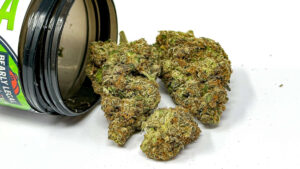THC (tetrahydrocannabinol) reigns supreme as the primary psychoactive compound found in cannabis. However, recent discussions have sparked curiosity about THC derivatives, particularly is thc p stronger than delta 8, and their potency compared to the traditional THC. This exploration delves into the nuances of each compound to unravel the mystery surrounding their strength.
THC P, short for THC-P, is a relatively novel cannabinoid that has gained attention for its purported potency. While THC is renowned for its psychoactive effects, THC P is said to be significantly more potent, potentially offering a more intense high even at lower doses. Despite its similarity to THC in structure, is thc p stronger than delta 8 reportedly distinctly interacts with the endocannabinoid system, leading to its enhanced potency.
On the other hand, Delta 8 THC has garnered interest for its unique properties, offering a milder psychoactive experience compared to traditional THC. Delta 8 is a cannabinoid that occurs naturally in cannabis but is typically found in smaller concentrations. Through selective breeding and extraction techniques, Delta 8 can be isolated and concentrated, presenting consumers with a product that offers a different psychoactive experience than Delta 9 THC, the most abundant and well-known form of THC.
When comparing the potency of THC P and Delta 8, several factors come into play. While THC P is touted for its intense psychoactive effects, Delta 8 is often regarded as more subtle, providing a smoother and less overwhelming high. The potency of each compound can also vary depending on individual factors such as tolerance, metabolism, and consumption method.
The legality of these cannabinoids differs across regions, with Delta 8 THC enjoying more widespread acceptance due to its derivation from hemp, which contains lower levels of Delta 9 THC. In contrast, THC P’s legal status remains uncertain in many areas, prompting regulatory scrutiny and inhibiting its accessibility.



















